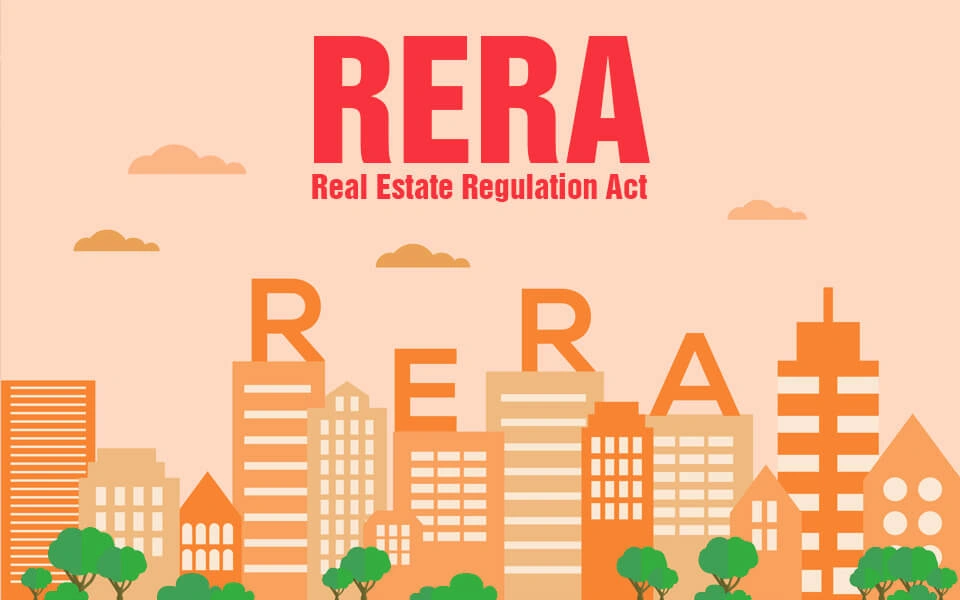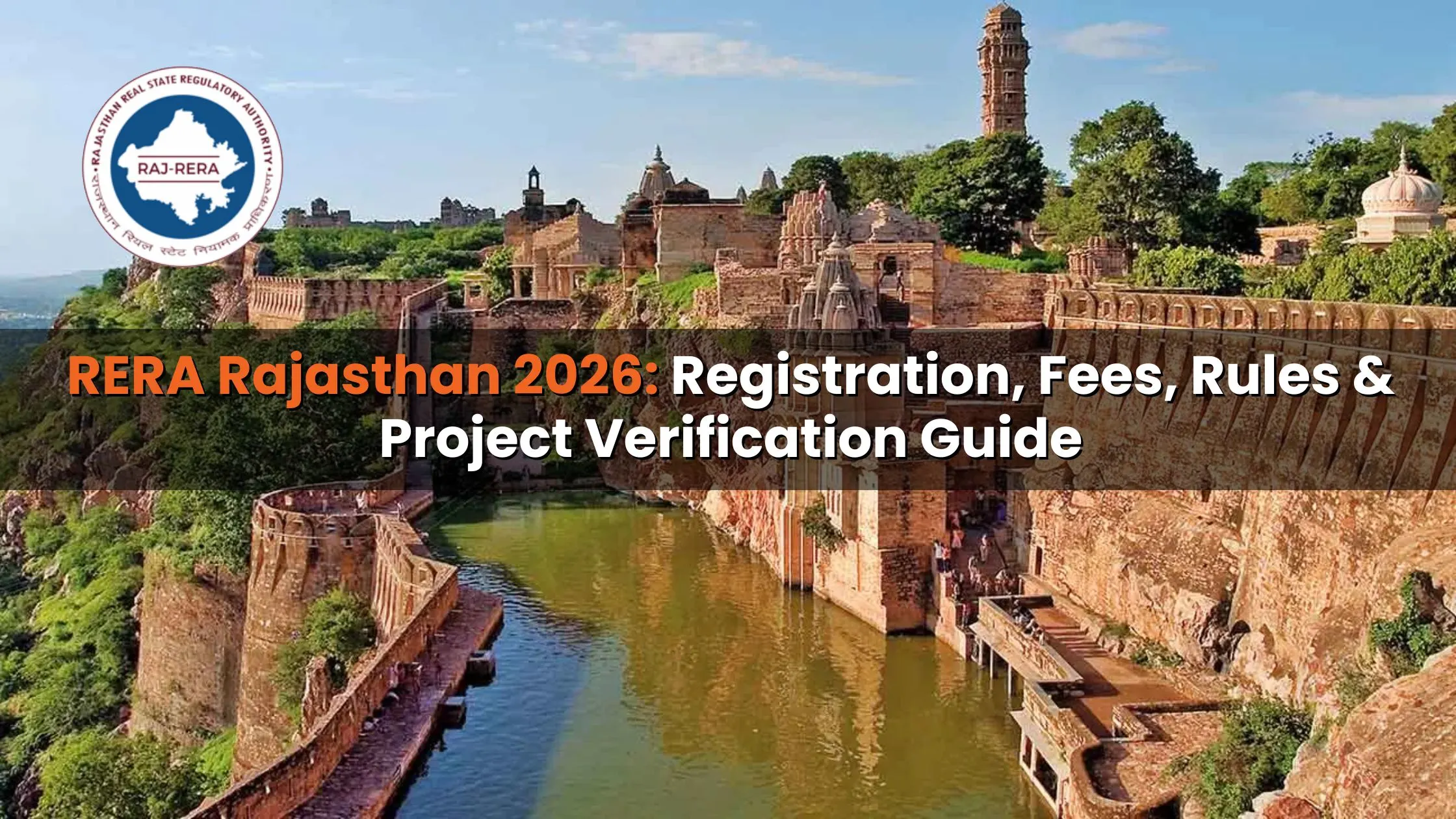Table of Content
▲- What is RERA?
- Why Was RERA Introduced?
- Key Features of RERA
- How RERA Helps in Your Homebuying Journey
- How to Check if a Project is RERA-Registered
- RERA's Role in Timely Project Delivery
- Dispute Resolution Through RERA
- Penalties for Non-Compliance Under RERA
- How RERA Benefits First-Time Homebuyers
- Conclusion
Buying a home is one of the most significant decisions in life, and it involves careful planning, thorough research, and a financial commitment. Before the introduction of the Real Estate (Regulation and Development) Act (RERA) in 2016, homebuyers faced several challenges such as project delays, lack of transparency, and sometimes, fraud. RERA was implemented to address these issues, making the homebuying process easier, more secure, and transparent.
In this article, we'll explore how RERA helps you in your homebuying journey, why it was introduced, its key features, and how it works in different states. Additionally, we’ll include state-wise tables that show how RERA functions across India.
What is RERA?
RERA, or the Real Estate (Regulation and Development) Act, is a regulatory law passed by the Indian government in 2016 to protect homebuyers and ensure transparency in the real estate sector. It mandates that all builders register their projects under RERA before launching or advertising them. RERA ensures accountability, makes project information publicly accessible, and offers grievance redressal mechanisms for homebuyers.
Why Was RERA Introduced?
Before RERA was implemented, the real estate sector in India was plagued with several issues:
- Delayed project delivery.
- Fraudulent builders providing misleading information.
- Hidden charges and unfair contracts.
- Lack of transparency in the sale process.
RERA was introduced to address these problems and provide a regulatory framework that protects homebuyers. It also standardizes real estate transactions, making the process more structured and less risky for buyers.
Key Features of RERA
RERA brings several features that make the real estate market more buyer-friendly. Some of the most critical features include:
- RERA Registration: Developers must register all residential and commercial real estate projects with RERA before selling or advertising them. Unregistered projects cannot be sold.
- Transparency: Developers must disclose all necessary information about the project, such as project plans, deadlines, and approval status, to buyers.
- Timely Delivery: RERA ensures that developers complete the project within the agreed timeline, and if they fail to do so, they must compensate buyers for the delay.
- Escrow Account: Builders must deposit 70% of the funds collected for the project in an escrow account. This ensures that the money is used only for that project.
- Standardized Carpet Area: Builders are required to sell based on the carpet area, rather than the built-up area, ensuring that buyers know the actual usable space.
- Grievance Redressal: RERA provides a platform for homebuyers to file complaints against developers, and disputes are resolved in a time-bound manner.
- Penalties for Non-Compliance: Developers who violate RERA's rules face heavy fines, including imprisonment in severe cases.
Also Read: HIRA and RERA Act under Ministry’s scrutiny for co-existence
How RERA Helps in Your Homebuying Journey
- Increases Transparency
One of the biggest challenges homebuyers face is the lack of clear and accurate information about a project. RERA makes it mandatory for developers to provide detailed project information, including:
- Project plans and layout.
- Status of approvals from local authorities.
- Schedule of project completion.
- Financial details, such as the project's funding status.
This information is made available on the respective state's RERA website, where homebuyers can verify the authenticity of the project before investing.
- Ensures Timely Project Completion
Before RERA, project delays were common, causing significant financial and emotional distress to homebuyers. Under RERA, developers are required to complete the project within the specified timeline. If they fail to do so, they are liable to pay compensation to the buyers. This ensures that homebuyers get possession of their homes on time.
- Protects Against Fraud
RERA ensures that only approved projects are listed and sold. Builders cannot advertise or sell projects without RERA registration. This protects homebuyers from investing in fraudulent or incomplete projects.
- Accountability of Developers
Under RERA, developers are held accountable for delivering what they promised. For example:
- They cannot make changes to the project without the consent of the majority of homebuyers.
- They must follow the approved layout plan and specifications as disclosed to the buyers.
- If there are structural defects in the building within five years of possession, developers must rectify them at no extra cost to the buyer.
- Standardized Sales Contracts
With RERA, there is a standard format for the agreement between homebuyers and developers. This ensures that homebuyers are not tricked by hidden clauses or unfair terms in the contract. It also helps buyers understand their rights and obligations clearly.
- Protection from Financial Misuse
RERA mandates that developers must deposit 70% of the money collected from buyers into an escrow account. This ensures that the funds are used only for the completion of the specific project, reducing the risk of mismanagement of funds or diversion of money to other projects.
- Simplified Complaint Resolution
If a homebuyer feels cheated or misled by the developer, RERA provides a straightforward and fast grievance redressal system. Every state has a RERA authority where buyers can file complaints, and the cases are typically resolved within 60 days.
Also Read: How to download RERA registration certificate?
- Fair Pricing
Builders are required to sell properties based on the carpet area (the usable space within the walls), rather than the built-up area (which includes external walls and shared spaces). This ensures that buyers pay for the actual usable space and not for areas they do not directly benefit from.
RERA in Different States
RERA is implemented across all states in India, but the rules and processes may vary slightly from one state to another. Below is a state-wise table that summarizes key details about RERA registration, website links, and complaint filing procedures.
|
State |
RERA Website |
Complaint Filing Process |
Project Information Access |
|
Maharashtra |
MahaRERA |
Online form, quick response |
All project details available online |
|
Karnataka |
K-RERA |
Online form submission |
Project status updates |
|
Gujarat |
GujRERA |
Online and offline |
Full transparency on builder details |
|
Uttar Pradesh |
Online complaint platform |
Extensive project listing |
|
|
Tamil Nadu |
Online and offline |
Access to all registered projects |
|
|
Delhi |
Delhi RERA |
Grievances resolved quickly |
Project completion timelines |
|
Haryana |
Fast-track dispute resolution |
Full project disclosure |
How to Check if a Project is RERA-Registered
One of the first steps in your homebuying journey is to check if the project you are interested in is RERA-registered. Follow these steps to verify the project's registration:
- Visit the RERA website of the state where the project is located.
- Enter the project name, developer name, or RERA registration number.
- Review the project's registration details, approval status, and completion timeline.
- Verify the financial details and other important information about the project.
RERA's Role in Timely Project Delivery
Project delays are a major concern for homebuyers, as they result in financial burdens such as paying rent and EMIs simultaneously. RERA addresses this issue by:
- Holding developers accountable for timely delivery.
- Imposing penalties for project delays.
- Allowing buyers to seek compensation or even cancel their agreement and get a refund if the developer does not deliver on time.
Also Read: RERA Act stands for Real Estate Regulatory Authority, overseeing RERA Rules.
Dispute Resolution Through RERA
If a homebuyer has a dispute with the developer, RERA provides a quick and efficient resolution process. Here's how it works:
- File a complaint on the state’s RERA website.
- The RERA authority will review the complaint and schedule a hearing.
- The complaint will be resolved within 60 days, and the RERA authority will issue a binding decision.
This ensures that homebuyers don't have to go through lengthy court battles to resolve their issues.
Penalties for Non-Compliance Under RERA
Developers who fail to comply with RERA's provisions face severe penalties, which may include:
- Financial fines: Developers may have to pay fines for violating RERA rules.
- Imprisonment: In extreme cases, developers can face imprisonment for non-compliance.
- Revocation of registration: RERA can cancel a project’s registration if the developer repeatedly violates the Act’s provisions.
How RERA Benefits First-Time Homebuyers
For first-time homebuyers, the process of purchasing property can be intimidating. RERA simplifies the process and provides various safeguards:
- Accurate information: Buyers can access all necessary information about the project through the RERA portal.
- Standardized contracts: First-time buyers are protected from unfair clauses in contracts.
- Grievance redressal: RERA provides an easy mechanism for first-time buyers to resolve disputes with developers.
Conclusion
RERA has revolutionized the real estate sector by making it more transparent, accountable, and secure for homebuyers. It has reduced risks, ensured timely delivery of projects, and empowered homebuyers with a legal framework for resolving disputes. Whether you're a first-time buyer or a seasoned investor, RERA provides the peace of mind that your investment is secure and protected.
If you're planning to buy a home, make sure the project is RERA-registered and take full advantage of the Act's provisions to make your homebuying journey smooth and hassle-free.
Also Read: How can a buyer exit a project under RERA?


_1770964981.webp)



_1768985363.webp)



_1770976628.webp)
Ans 1. RERA is a law that regulates the real estate sector, ensuring transparency and accountability in the sale of properties.
Ans 2. RERA protects homebuyers by mandating registration of projects, ensuring timely delivery, providing transparency, and offering a platform for grievances.
Ans 3. Yes, under RERA, you can file a complaint if the builder delays possession of your home.
Ans 4. RERA applies to all residential and commercial projects above a certain size, but certain exemptions may exist.
Ans 5. You can visit the RERA website of your state and search for the project by its name, developer name, or registration number.